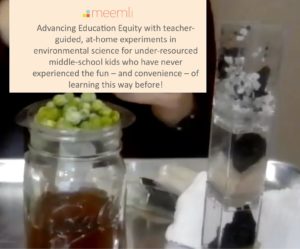(We’re re-posting our favorite Father’s Day reflection appreciating what fathers have taught their children!)
As Father’s Day approaches (and we’re inundated with ads!), it gets us thinking about the difference fathers have made in our lives. This study concluded that a father’s presence in a child’s life positively impacts the child’s ability to learn and do well in school. And another study shows that play time with dads has significant impact on their children’s growth.
But we don’t need studies to tell us dad teaches us a lot! As youngsters we only cared that dad was there to give rides and hugs, play catch, help with homework and so on. But as we grow into responsible adulthood ourselves, we realize that along with the day-to-day care over the years, we also received the guidance we need for life.
This year, as we appreciate the joy and fun dads bring into our lives, I’m excited to share what some of my friends, family and I, all recent college grads, learned from our fathers and now use in the “real world”.
Be Patient
I’ll start with my own step-dad, who is possibly the greatest step-dad on Earth. He’s not only hilarious, but he also gives great advice! One of the more valuable pieces of advice he’s given me is to be patient. I’m always on the run, in a rush, or busy. He taught me to slow down sometimes and to be patient with people and with opportunities.
Pay It Forward
“My dad taught me to pay it forward. He was always doing pro-bono work, volunteering to chaperone fundraisers at my school, and even took some of my peers under his wing – kids who either had uninvolved fathers or no fathers at all. My friends not only liked hanging out with me. They liked hanging out with my dad too, because he was cool and gave good advice. When he passed away, a woman I didn’t know came up to me and told me my father had a heart of gold. I had known that for a long time.” – Dana, New York, NY
Pursue Your Passion
“When people say ‘no one loves their job,’ I just think of my dad and realize there are exceptions. My dad is a cardiac specialist and he loves it. He cares deeply about his patients, is always looking to learn more, read more, and stay up-to date with the latest and greatest in heart health. Many people thought I would want to be a doctor because my dad is a doctor and enjoys his job. I’m not going to be a doctor. I’m going to law school, in hopes of working in education reform. That is my passion, and it was my dad who truly encouraged me to pursue it.” – Sam, Scottsdale, AZ
Prepare, Then Go With The Flow
“My dad gives great career advice. He even talks to my friends and roommates about jobs and interviews. I think the most helpful piece of advice he’s ever given me was, “Over prepare, and then go with the flow.” It’s a quote he took from somewhere, but a great one, nonetheless! For example, I used to get really nervous before taking exams. He’d encourage me to prepare and study as best and as much as I could, and then to take a breathe when I sat down for the test. He explained to me that the only real control I had in the process was in studying and getting enough sleep before the exam. I should prepare well and then leave my nerves at the door. It was time to relax. He was right – why should I let nerves undo all of the hard work I had put into preparing for the exam? Over time, I’ve become more relaxed when it comes to tests and at interviews.” – Hanna, Providence, RI
Have A Sense Of Humor
“My dad is the funniest guy I know. He worked in a very serious government job, but he taught me that a sense of humor (and patience) can get you through tough times. I have two older sisters who were both in Girl Scouts. My dad volunteered to be the cookie mom. He literally went around calling himself “The Cookie Mom.” He later told me he was a little embarrassed about it, but ended up enjoying the experience more, because he brought some humor into it. He taught me to have a sense of humor about life in general. Awkward and nervous moments can often be diffused with a bit of humor.” – Nick, Madison, WI
Our lives have been shaped by our fathers. As you’re celebrating Father’s Day, along with the cards and gifts, let your Dad know one important thing he taught you – he’d love to hear about it!
What was the most important life lesson you learned from your Dad? Take a minute to leave a reply and share with us!
Blog
While 2021 started off grimly in the throes of the pandemic, the situation slowly improved over the months and it was great to see most kids being able to attend school this fall. The year had its challenges, but we at Meemli are thrilled that we were able to continue executing on our mission to advance education equity.
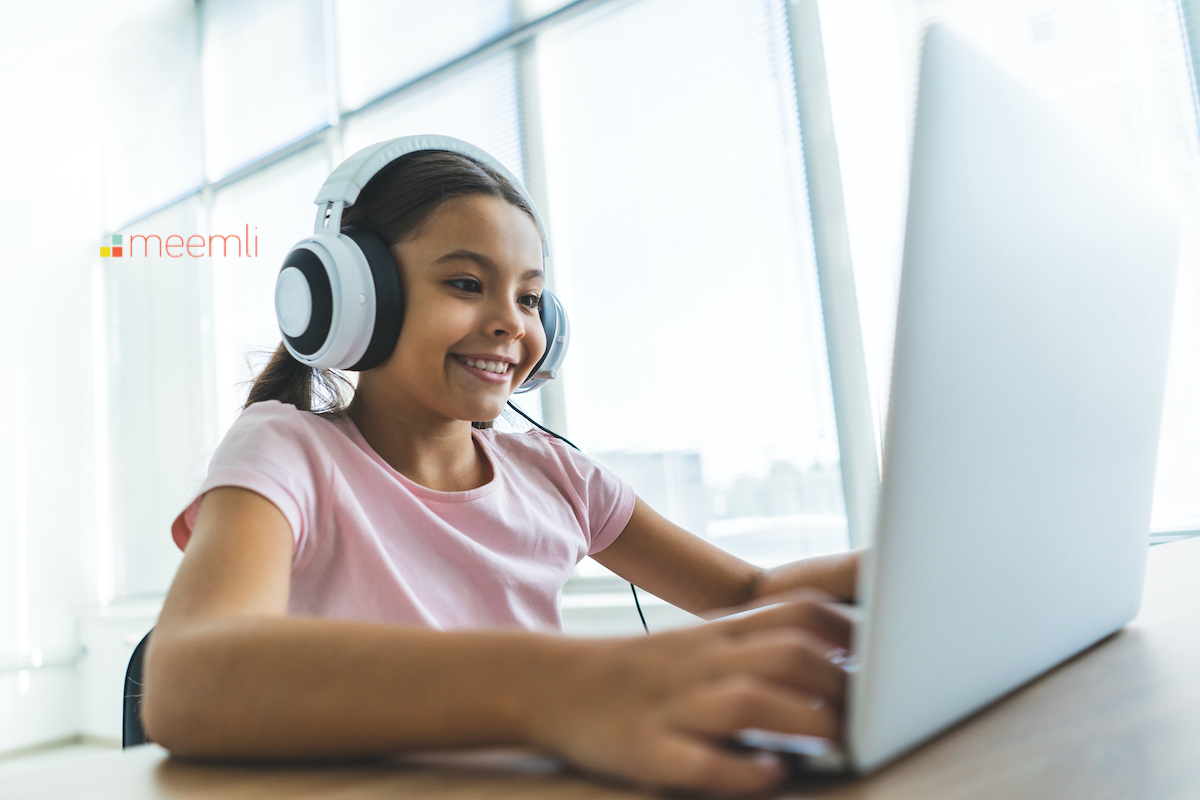
Rising To The Challenge
In the second year of the pandemic, Meemli had to adjust to a new landscape:
- Students did not go to classrooms in most public schools until the fall, and schools and teachers were overwhelmed with distance learning transitioning to hybrid and in-person learning to provide students with the individual support they need – Meemli helped fill this gap! Meemli worked with nonprofit partners to help provide engaging learning programs to middle school students in underserved communities.
- While pandemic relief understandably attracted most of the charitable funding, Meemli is thankful for :
- The generous support from the community (and a grant from the State) that helped us continue to provide the programs.
- For our small but great team of a few staff and volunteers, dedicated to our mission and sharing the work in delivering programs.
- For the many volunteer mentors who continued to sign up to guide the students in these programs.
- With the support of our team, donors and community volunteers, Meemli was able to offer programs that engaged middle school students and advanced their learning. Our programs included:
- An intro to computing and careers
- A hands-on environmental science program where kids got to do experiments at home
- Critical skill building in reading comprehension.
- All the programs we did this year were successful and popular with the students:
- We were thrilled to learn that 100% of them would do another program with us!
- It was equally important to learn that our mentors found the programs rewarding too and many have signed up to volunteer for other programs.
______________________________
“The best thing about the program was that I got to learn about technology and spend time with my mentor.”
“What I enjoyed the most was doing fun experiments at home.”
“Thank you for running this awesome organization! I’m enjoying my time with my student and he’s doing great.”
______________________________
Planning To Grow
Meemli’s programs have proven to be successful and we are excited to continue to advance education equity in the next year too.
We hope to:
- Build capacity to expand our existing programs to serve more students
- Create new programs in other topics to support students’ academic goals
- Offer summer programs for students who typically miss out on summer enrichment
Our program enrollment has increased 100% each year since we were established in 2019, even with the 2020-21 pandemic challenges, and we hope to continue that trend. Of course it is only possible with the continued support of the community and corporate partners!
How You Can Help
Meemli relies on the power of the community to advance education equity – and that is each and everyone of you! There are many ways you can make a difference for Meemli from donating to volunteering as a mentor or sharing your business skills to help the Meemli team deliver programs. We hope you will include Meemli in your giving back plans – you may find our Founder/CEO Usha Sekar’s post on charitable giving helpful!
We are deeply grateful to all our well-wishers for supporting Meemli in so many ways in making an impact, and wish you all a happy holiday season!
Blog
In January of 2020, I wrote this post about how as a nonprofit Meemli was geared up to focus on our mission of improving equity in education. As the year winds down, I’m writing about what we were actually able to accomplish in this year of global disruption.
At the beginning of the year, COVID wasn’t on our horizon, but now it has markedly changed our lives and the educational landscape, with distance learning, hybrid learning and other options substituting for onsite, in-school education.

The closures due to COVID-19 and the resultant remote learning has been hard for most children (and their parents). But, the pandemic has disproportionately impacted low-income families with higher rates of infections, job loss, and food and shelter insecurity. When schools went virtual, the digital divide and educational inequities for their children became glaringly apparent. With reduced access to teachers and academic support, underserved students are likely to have a 30% or more learning loss this year.
What We Accomplished This Year
I’m so proud that Meemli’s small, dedicated team of mostly volunteers (and almost-volunteers) have stepped up to the challenge of helping over 200 underserved students with one-on-one academic support. As a nonprofit focused on education equity, I’m excited to report that we have made tremendous progress, even in this unquestionably difficult year:
-
We partnered with nonprofits that serve low-income families and provided remote academic mentoring.
-
We enabled teachers to engage students struggling with distance learning by giving them free use of our unique collaborative learning space.
-
We offered topical programs during a tumultuous summer, including short courses on science (climate change) and reading with understanding (social justice) to engage students stuck at home.
-
We bridged the pandemic isolation and the generation gap by connecting middle schoolers with retirees on Meemli’s safe platform to co-create mini-memoirs.
______________________________
“When the pandemic unexpectedly disconnected Sunday Friends from the youth we serve, Meemli helped us to start closing the gap. Through Meemli, we can ensure our kids receive the support and guidance they need as they navigate distance learning and home instability, flexibly interacting with mentors in a virtual, safe, and thought-provoking environment.
—Sunday Friends, a nonprofit that serves low-income, vulnerable families in San Jose, CA
______________________________
Looking Ahead
With continued demand for our offerings, we aim to scale to support ten times as many students and develop critical new programs in core subjects, including academic support in Algebra. Research shows that students who do not complete Algebra 1 have only a 20% chance of graduating from high school.
While many worthy organizations are focused on feeding and sheltering those in need, we believe that supporting the educational needs—and future success—of underserved students is also critical. And of course, we need the support of our sponsors and the community to make that possible.
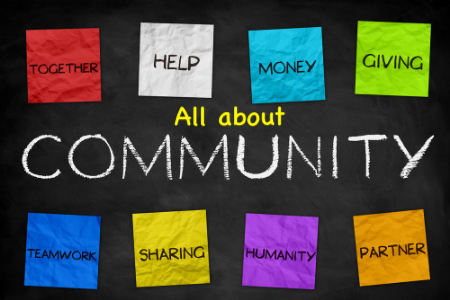
What You Can Do
There are many ways you can make a difference.
- Donate.
- Donations of any amount will have an impact with $25 helping enroll a student in a program and $50,000 going towards creating a new program. You can donate here.
- Make your donation grow – donate through your company’s matching program for employee giving
- Suggest that your company consider sponsoring a Meemli program for a local school.
- Volunteer.
- A lot of our programs rely on mentors to provide academic support. Volunteer to mentor a student (sign up here). You can make it more impactful by bringing in coworkers/friends and recommending your company or group sponsor a mentoring program in a local school.
- Volunteering your communication, teaching, business or technical skills will help Meemli support more students (get in touch).
- To truly achieve education equity every community has to do its part and Meemli is working hard to increase community engagement. Volunteer to start a mentoring program in a local school or youth organization that needs it (contact us to learn how).
- Share.
- Let others know what Meemli can do for students (or what they can do for students with Meemli). Use the share buttons on this post! Have ideas for Meemli? Send them to us – we’d love to hear from you!
Finally, heartfelt thanks to everyone who supported Meemli and the education cause – and also to everyone who helped, in any way they can, the millions who need support with food, shelter and so much more in these difficult times. We look forward to working together to make next year easier and better!
Blog
Well, 2020 definitely turned out to be more surprising and harsher than any of us could have imagined. The pandemic has disrupted lives globally, and here in the first month of the second half of the year, we, especially in the US, are not out of the woods yet. The COVID-19 impact on education has been tough to handle, for kids, parents, educators and administrators, with most schools closed and distance learning not being as smooth as they hoped. But as always, with challenges come opportunities to make a difference and we are rising to the challenge!
We at Meemli (also dealing with the challenges of staying safe during the pandemic), know we are uniquely positioned to lessen the negative COVID-19 impact on education as we already have solutions in place. We have been working with accessible high quality student-engaged online learning for years, a little ahead of our time, but now we’re working hard to bring that experience to as many students as we can.
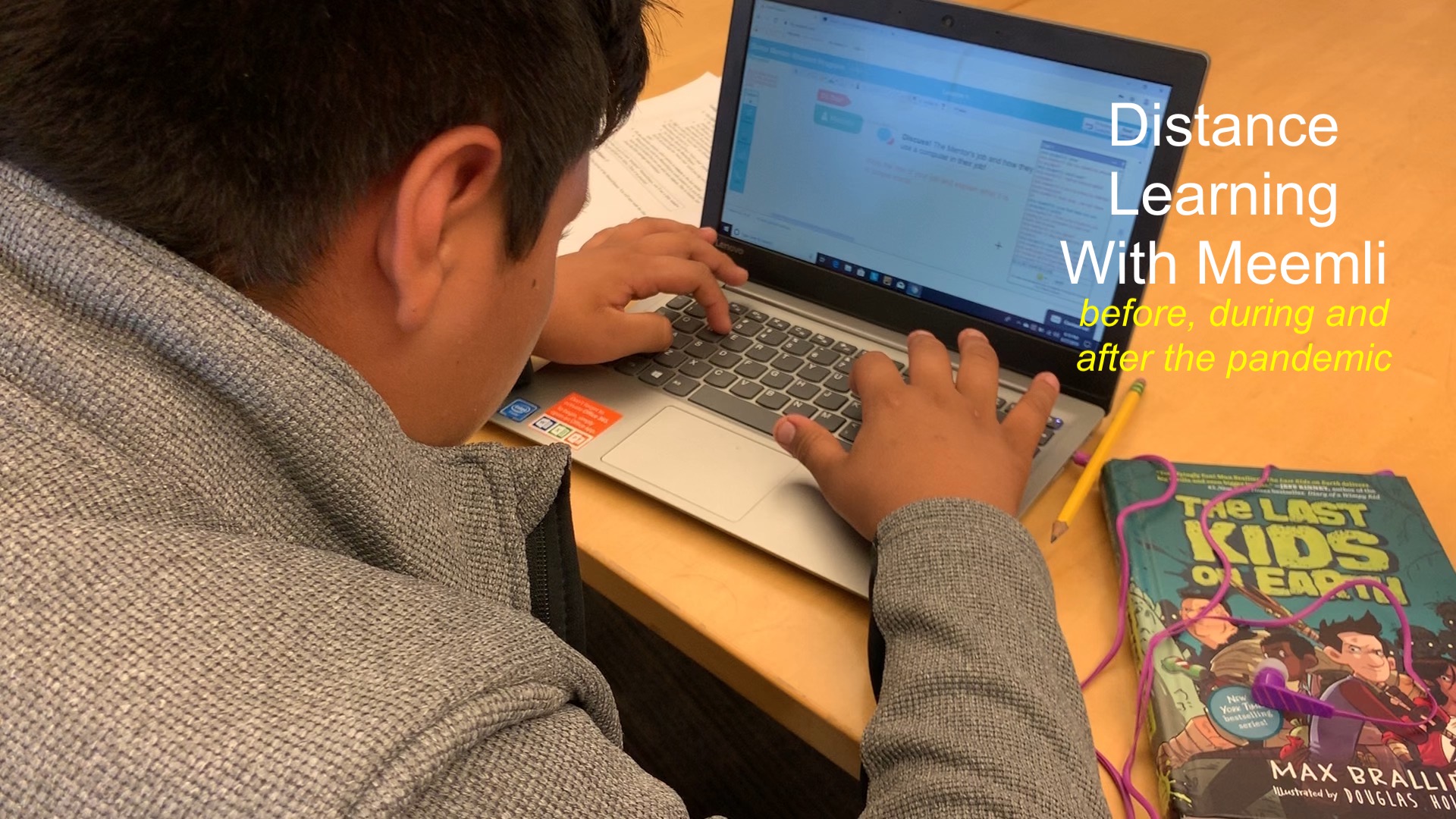
What We Do
Meemli knows that “learning is easier with a little help” and to improve education equity we make sure we can offer it to all students wherever they are – which we accomplish by using technology, the expertise of educators and the power of community.
-
- We have an online learning space (platform) that safely and easily connects students to those who can help them – teachers and mentors.
- Our platform was built with the specific purpose of supporting the interactions of young (middle to high school students) in a safe, private manner to deliver engaging and effective learning experiences.
- This platform allows us to create and offer courses and programs connecting students to high quality teachers and trusted mentors to fill various learning needs.
What We Have Done So Far
Since schools shut down this spring, we have been using our online learning platform and related services to help in the following ways:
-
- Remote Schooling. Provided middle school students with a highly engaging distance learning experience in science, and their teacher an easier and more effective way to deliver live teaching.
- Mentoring. Connected young students with limited knowledge of computers to trusted mentors who guide them in a program providing a introduction to computing and careers.
- Summer – Reading. Offered a free summer reading program (in support of Black Lives Matter) guiding middle school students through understanding the need for racial justice through reading a related book and small group discussions led by an experienced educator.
- Summer – Science. Offered a summer science program helping middle schoolers enjoy a fun, collaborative learning experience on how climate change affects the oceans around us led by an innovative science educator.
- Summer – Community. Provided an opportunity to young middle school students to sharpen their writing skills as well as build empathy and understanding by connecting with isolated retirees to reduce their loneliness, hear their stories and share a memoir.
How We Can Help Now
Distance learning is here to stay. Even when schools are back to being fully onsite, there are benefits to connect students in learning together with the support of various helpful sources. As we are facing the opening of the schools for the 2020-2021 school year, we can leverage our online learning platform to help in these meaningful and impactful ways:
-
- For teachers looking to improve student engagement for distance learning:
- The free use of our platform, with training and support, in providing a highly interactive learning space which can add to existing tools.
- For schools and nonprofits working to provide supplemental academic support to their students:
- Free access to trusted adults in professional careers who connect remotely to students and offer guidance and support in their schoolwork or learning enrichment.
- For parents of students needing extra academic support:
- One-on-one (or optional small group) coaching in core subjects.
- For teachers looking to improve student engagement for distance learning:
Why Choose Us
Bringing about equity in education is a big task, and during the pandemic, the inequalities have become even more marked with the dependence on remote schooling and the lack of resources in low-income families. There are many solution options to fit different needs and preferences.
Meemli’s unique position:
-
- Experienced in interactive, collaborative online learning for middle and high school students
- Offers platform for teachers to enhance distance learning, or in-class collaboration
- Helps students who need some extra support through its supplemental programs
- Partners with organizations to provide trusted mentoring programs to students
- Includes high quality student-centered educators and team
- Is a nonprofit focused on education equity offering many free and affordable solutions
If you would like to know more about any of these options to help lessen Covid’s negative impact on education or just need some help for a middle/high school student and want to know what we can do, just drop us a line here – we will respond!
Meemli is committed to doing the best we can to share our tools, expertise and services to help as many students as we can to during the pandemic and beyond . Reach out to us and help us help you!
Blog
(We are re-sharing our favorite DIY ideas for creative summer fun and this year they may be even more on point when most are sheltering at home. Parents please share with your middle or high schooler and feel free to join them in the projects and have some fun yourself!)
Yay! Summer break is here! You can forget all about learning for a while. Wait. This summer is different though. There may not be many opportunities to go to a camp and you’re already bored with social distancing-induced activities of binge-watching old TV shows and getting your thumb in a cast playing a zillion hours of video games. And the dreaded summer learning loss is probably also worse this year given the haphazard distance learning due to Covid-19.

The good news is that you can make your own summer learning plans and it doesn’t have to involve outside teachers or a camp schedule. We have some ideas for summer activities that are:
-
- Inexpensive and use readily available materials
- Take up as little or as much time as you care to put in
- Can be done pretty much anywhere in the world
- Build your critical, and creative, thinking skills
- Totally controlled by you!
The steps for any of these activities are pretty simple:
✔️ Pick something you enjoy doing
✔️ Dive deep to learn about it
✔️ Make it your own
Check out our ideas to get you started!
1. If you’re into games.
Is playing video/online/board games how you relax?
Take your favorite game and think about how you would do it. In detail. How would it work, what would be the rules. Keep refining it. And then create a new game with your own rules. Maybe this would even get you into coding!
If it’s a board game, here are some ideas on getting started and even build a prototype with cardboard. This is a good one to do with friends, you can at least get them to play it with you.Think the characters in the video games are stereotyped? Mix them up. The levels are too easy? Add new ones. If you want to take on coding, you can create, or add to, an online game. Minecraft modding anyone?

2. If you love movies.
Watching movies is almost an universally popular way to spend time, but do you feel you’re more than a mere fan, you’re a critic and aficionado?
How about going beyond watching movies to thinking about making one? Take a favorite movie and think about how you’d remake the movie. Think (or learn about) about all the stuff that actually goes into making a movie – you’d be amazed at how much there is to learn and do.
But, though it is good to be informed, don’t be intimidated by what it takes to make a professionally. Write a script, recruit a few friends, charge up your smart phone and create your own masterpiece. You’d see the difference between making a movie and capturing 10 seconds of your dog chasing its tail to share on Snapchat – the first step to preparing for being asked to make Star Wars Episode 35: The Force is Still There.
3. If you’re a maker.
Are you into the Maker movement and DIY thing? Do you like to knit, crotchet, sew, solder or glue stuff together?
Then forget instructions and patterns. Think of something that you’d like to make and go about making your own instructions, patterns, how-to guides. Experiment, review, revise, repeat. This is also an activity you can do with friends. Whether it is making a doggie hat or a robot, you will be exercising your brain as well as your maker skills. Here are some suggestions for DIY ideas to get you started on thinking about what you’d like to make.
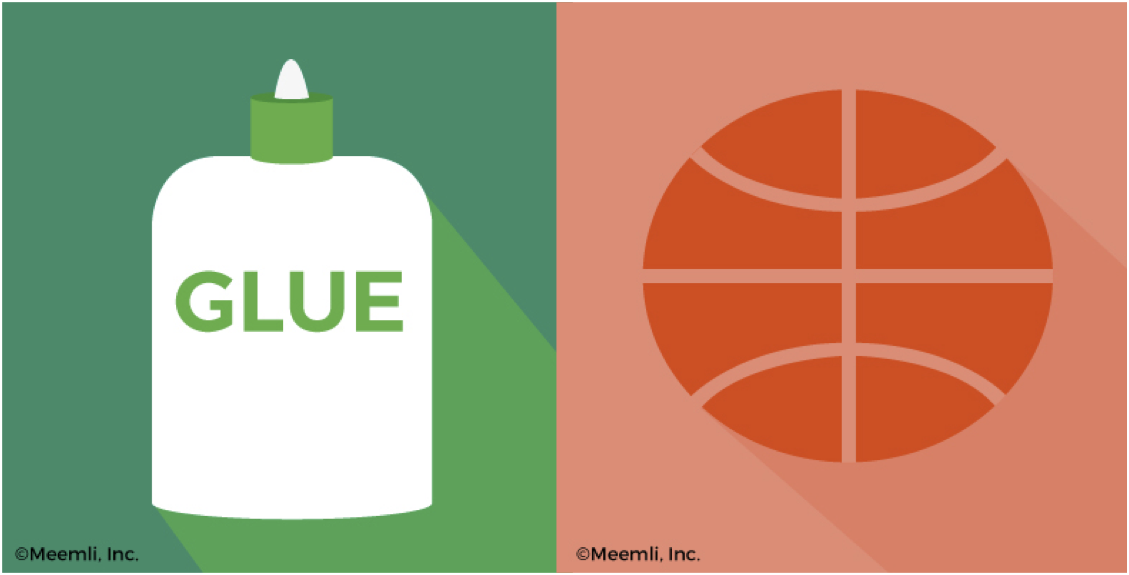
4. If sports are your thing.
Are you into one or more sports at school but not attending a sports camp this summer? Or you’re just a casual player and would just like to get better?
Whatever your sport, you know you can get better at it. There’s practice and watching/learning from the pros of course – that what you get from camps. But athletes are turning to analysis to figure out how to improve.
What if you did the analysis for yourself? Angling the ball differently to make a basket, how you can put more power into your kick if you change the way you stand – you may be able to learn some of this on your own. Recruit a friend and two and make your own mini-camp. Take turns capturing plays on the video, review your play against the pros (YouTube has you covered there), make your own training schedule.
5. If you really like writing.
Do you read a lot and enjoy the challenge of creative writing, or would just like to get better at it?
One summer may not be enough time for you to finish the Great American Novel, but it will help to get started. Or tackle something smaller and set yourself a challenge like writing a mystery short story. Do some research on writing resources for teens (you can get started with the one here) to figure out what interests you.
If you prefer to write something shorter and get more immediate feedback, try writing your own blog. This site might give you some ideas. (Contact us if you’d like to write a post for us!)
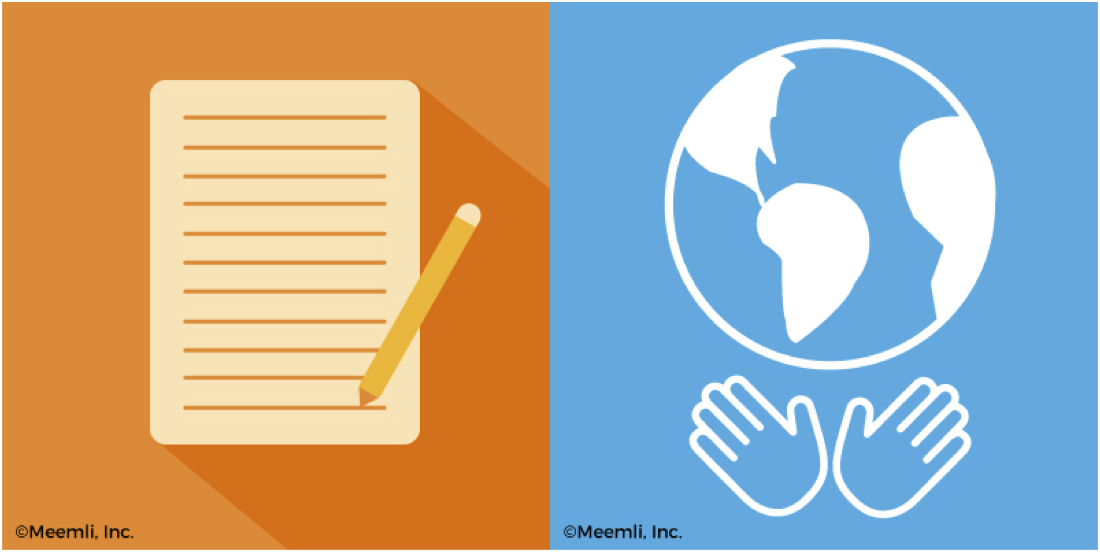
6. If you want to change the world.
You often volunteer for various causes to help people, why not take some time to get more involved? Kids the world over are getting into the act of improving the world they’re inheriting.
Pick one problem that you wish you could fix, maybe something close to home, but that’s not a requirement. Dig around to find out what is already out there to help fix this problem and if there’s someone doing something you would like to join in, you can start by contacting them. You can also take on bigger sized projects, either one that already exists (like sending used books for kids in Africa) or one that you’d like to start. You will find many adults willing to give you support, and you will gain invaluable skills while helping others.
These are just some quick, simple ideas to get you started. Do your own add-ons and take it as far as you’d like to go. Take ownership of your summer activities for creative learning and enjoy the experience!
And let us know how it goes – others might get inspired by you!
Blog
Meemli’s mission is to improve education equity by bringing great learning experiences to all students, especially the ones that have limited exposure to them. We do this by using the power of community, the expertise of educators and the convenience of technology. We put them all together to deliver courses, mentoring programs and more. We have been very successful so far in delighting students, inspiring educators and satisfying parents who have had experience with Meemli offerings.
But for our mission to flourish and reach more students and bring more impact, we needed to scale. We realized that our business model and mission would be better aligned if we transitioned to a nonprofit (you can read why here).

As of last year we are a nonprofit – and now our business model and mission are both in harmony! As we are going through that transition, it is almost like being a start up all over again (with lots of paperwork!), but thankfully quite a bit easier. Because we already have the foundation that we know works, and we have people who have worked with us and who enjoy the mission and their work tremendously, we are definitely better poised to scale effectively to reach and help a lot more students than before – and deliver on our goal to improve education equity.
So what will we be doing now?
- We will continue to provide the additional help students need to develop core academic skills especially in middle school and early high school grades.
- We will continue to help students with reading, writing, math, science and other subjects as needed.
- In addition, we are in a position to include enrichment topics to help develop the whole child and plan to add them to our offerings.
- Most importantly, as a nonprofit, we are able to partner with corporations and other businesses, as well as other nonprofits, in delivering our impact. In particular, this enables us to bring the impactful experience of connecting with trusted mentors in a safe environment to more students, wherever they live or go to school.

How We Help
Here are all the ways we can help students:
-
- For Schools And teachers
We offer programs to supplement the work that schools and teachers are already doing to grow the capacity of the students in reading, writing, math etc. We can customize what we offer based on the needs of the school or even a specific subject for the teacher.
-
- For After- And Outside-Of-School Programs
We offer supplemental programs, especially online mentoring programs, with trusted mentors who are excited to provide mentoring without having to deal with inconvenient commutes.
-
- For Corporate Social Responsibility
We work with corporate partners to develop specialized online mentoring programs that actively engage their employees in mentoring students wherever they are, with the ease of flexible schedules and without the stresses of commuting.
-
- For The Community
We can help community organizations, or anyone or any group in the community, to leverage our platform and programs to provide tangible support to their local schools.
-
- For Parents And Students
Additionally, our educators offer coaching, either one-on-one or in small groups, for students who need some extra support in core academic subjects.
A lot of these programs are free of cost or at very low cost, due to generous sponsorships – once again our business model and mission serve the same goals!
How Can You Help?
It is important that each of us figures out how we can help improve education equity in this country as it affects us, our children and future generations (see this post where I detail why). So while there are many, many worthy and important causes that we should all support, we urge each of you to consider how you could also support education to the level or extent you can (here are some ideas on how you can engage).
Our team at Meemli is doing what we do so we can help improve education equity. We cannot do this without your help though! Here are some ways you can help us help the education cause:
-
- By donating to support our programs
- By volunteering as a mentor
- By volunteering your business, technical or educator skills
If you would like to to know more about our work, please sign up for a newsletter (in the footer). Please also check out this page to learn more about how organizations and individuals can work with Meemli to help improve equity in education.
Thank you for your support in getting us to where we are. The entire Meemli team is looking forward to working with you to make a difference for our students’ success and would love to hear your thoughts – leave us a comment!
Blog
Sorry, we couldn’t pass on the pun!
New Year’s Eve is almost here and for many, this means making lists of resolutions to keep in 2020. This year, before making a long to-do list, start with a vision of what you want the year to be instead.

Prioritize
Take some time to reflect over the past year(s) and think about what you’d like the new year to be like. What changes would you like to see and what would you keep the same?
There are many areas to consider: health, family, friends, academics and extra-curriculars (for students), hobbies and skill-building for the future and so on. Hot tip: focus on the areas that are most important to you and where you want to see change. Getting more active and healthy may be more critical than joining a book club so you can read more books (though that might be easier!).
As you prioritize, ideally you will find that you are focusing on just a few areas – and that’s a good thing. Starting the year with an overlong to-do list is daunting and it is probably not likely you will get them all done by year-end, so stick to the high-priority items that you know will make the biggest impact for you.
Visualize
Visualization is a common technique to give form for concepts and ideas. Along with writing down what you want to do, having visuals makes them easier to remember too. We’re recommend this simple, tangible and actionable approach.
-
- Write down your priorities. For example, it may be “learn to play guitar”, “get more active and healthy” and “get better at writing”.
- For each priority, find (or draw, which might be even more fun) an image – someone playing a guitar, someone playing basketball, a book you admire.
- Put these images in your journal so you can get a quick visual reminder of what you are aiming to do this year.
By the way, if you’re not already keeping a journal, now’s a good time to start one. Even if you don’t write in it everyday, it makes it much easier to track your progress.
Itemize
Now that you have a “vision” of what you want to do based on your priorities, you can now get to the next level of detail and create specific goals.
For example, you might want to aim for a goal of running a 5K race if getting more active is part of your vision. It is important that the goals are achievable within the time-frame of the year and are within your reach. They could stretch your abilities a bit as long as they are doable. Once you have a goal identified for each of your priorities, write them down in your journal!
For both adults and kids, research has shown that all these steps will make it more likely that the goals are achieved, so put in the time – for yourself, and while guiding your younger child.
Historically, people have been making new year’s resolutions for centuries. A new year is a new beginning and brings with it tremendous possibilities. If you’re short on time and busy with end-of-year festivities, here’s our very short guide to help your reflect and refresh yourself now – and maybe work on the goals later!
Best wishes for the new year and the new decade in 2020 from the gang at Meemli!
Blog
(A teacher’s perspective and another favorite of ours!)
Sleep in. Stay up late. Play video games…all day.
According to my high school students, they’d like to spend their summer vacation. Now, the reality may be different (parents?), but the freedom and possibility that summer represents to children – to all of us – is very real. Another very real thing: back to school has kicked off around the country.
But luckily, the freedom and possibility that make us love summer can also help your child successfully transition back to school, reading, perhaps even with a greater appreciation for it.
Why Read
If you found your way to this blog, fantastic! You are probably already convinced of the importance of reading for academic success. And mountains of research back you up. A Department of Education study assures us that families play a big role because the amount of reading done outside of school can greatly impact a student’s success in school.
Unfortunately, academic skills often decline over the summer. If your child has read nothing but tweets and fortune cookies all summer (ok, it happens), they might have begun a trip down the summer slide. But don’t panic. You still have time to get them back on track.
How To Read
In short: build stamina. From my experience, the first couple of weeks of school doesn’t pass without at least a couple students reminding me that my 8:45 English class is happening at least a couple hours before they’re supposed to be awake. But teachers often expect kids to hit the ground running. So begin to help your child find a reading routine. The reading requirements that are awaiting them in English class, social studies, science, economics, etc. will be much easier if your child is already accustomed to reading daily.
Now, if your child hasn’t been reading consistently this summer, start small. Fifteen minutes is probably about right for a middle or early high school student. They can do it. They will build from here, to 20, 25 even 30 minutes. Wouldn’t it be wonderful if your child started this school year reading 30 minutes daily? This is probably one of the most important things that you, as a parent, can do to support your child’s success in school this year.
What To Read
As a teacher, I have asked a student what he or she like to read and been told, “I dunno” innumerable times. Ah, yes. Often, behind the sullen, frustrated or bored tone is a child who genuinely doesn’t know what he or she likes to read. Don’t give up if you get this response!
I’ve found great success asking students about their favorite TV shows or movies and tying them to genres and books. Fans of Walking Dead can Google “young adult (YA) zombie novels.” Is Gossip Girl their thing? Run a search: “books like gossip girl.” Jurassic World? Ender’s Game? Hey, these two were originally books, so that’s easy! (Also, your local librarians would love to help your child find a book. They live for these moments.)
Don’t be disappointed if your child isn’t interested in “important authors” like Shakespeare, Hawthorne or Melville. That’s what school is for. Generally, in class, your child will be reading more difficult texts that are not easy to relate to or understand. Independently, your child should be able to choose. Shakespeare’s great, but he’s not at the top of my personal summer reading list either.
Remember, it doesn’t matter if you want to read this book or not. It matters that they do.
Where To Find Resources
Time to tap the Internet. There are many great online resources that can help your child become a better reader (I could do a whole post on them) and here are some good ones to get started.
Check out YourNextRead.com which features long lists of “to read” books for many of my students who “don’t like to read.” GoodReads.com also has hundreds of lists of books for every taste.
Then there are the sites with high-quality content, especially non-fiction, aimed at middle and high schoolers, here are a few:TeenInk (written by teens), NY Times Learning Network, Smithsonian’s TweenTribune.
Final Tips
It’s a simple thing, but reading logs can be a great motivator. From reluctant readers to bookworms, reading logs satisfy. It’s just gratifying to see how much you’ve read. You can find printables online, or simply keep track of the basic info on a piece of notebook paper: book title, start/end pages, and amount of time read. Do what seems most motivating for your child.
Discuss the books with your child to help develop deeper understanding – ask about the main idea, the plot, the characters, what the author is trying to achieve etc. (Think your child may need help with reading or writing? Check out free reading and writing assessments on Meemli Academy or just contact Meemli.)
And my favorite: read with them. Can you find fifteen minutes to actually sit down and read too? The most successful reading program I’ve ever experienced was at a school that had daily reading time during which the teachers were also required to drop everything and read. No email, no grading, no lesson planning, just read for pleasure. It was transformative for everyone. You can be a role model and inspire your child to read by doing it yourself.
What are your tips to get your kids reading? We’d love to hear them!
Blog
(We’re re-sharing another of our annual favorites – take charge of your new school year!)
Does it feel like summer’s gone, though the calendar doesn’t say so? Are you beginning to feel stressed? Could be because your summer break’s ending (104 days, calculated according to Phineas and Ferb). Good news – being back to school is not all bad! Understandably, starting a new school year and getting adjusted to a new schedule can make you tense, but with the right approach, the new school year can be more enjoyable than you expect.
Here are some simple tips that can make all the difference on how you feel about getting back to school and starting a new year/grade.

Check Your Attitude.
There are plenty of ways that you can mentally prepare for the upcoming year. Try to approach the year with a positive attitude – just think of all the fun experiences you’ll have along the way! For example:
- School’s the only time in your life you get to see so many of your friends every day.
- You can reconnect with your favorite teachers and maybe you’ll get some new ones.
- You get to do extracurriculars and school activities – with friends!
Depending on how you’ve spent your summer, going back to school might feel like a complete turnaround, so it’s worthwhile to set aside some time to refocus yourself. According to the American Psychological Association, mindfulness can be defined as “a moment-to-moment awareness of one’s experience without judgment.” Mindfulness techniques come with a whole host of proven psychological benefits, like stress relief, increased focus, and better memory. While it may not suit everyone, it might be worth a look and a discussion with your parents on whether you should try it!
Make A Plan.
A new year means a new schedule, and a new schedule always takes some getting used to. We know you’ll be busy between your school and your extracurricular activities, but the amount that you’ll enjoy the upcoming year depends on your ability to budget your time. Make a plan ahead of time to reduce your stress and help you feel on top of your school life, instead of being burdened by it.
Part of making a plan is taking into consideration what is hard for you and what is easier. Keep that in mind as you make choices, if writing reports takes more work, make a note to yourself to always get started earlier on your reports. If you tend to get tense about tests, cut yourself some slack and don’t schedule too much the evening before one. When you’re making a detailed schedule, which you should (and parents should help their younger children with this), use your planner to keep track of all your commitments, not just the ones for school.
Finally, make your plan bigger – think about what you want to get done at the end of the school year. If possible, mix in personal goals (want to try out a new sport) with academic ones (want to improve writing skills) and even social ones (make new friends) and think about how you can go about achieving them – you have the whole new year ahead of you to work on them!
Use Your Support Network.
Even if you’re mentally prepared for the new year and have everything planned out, you can be sure that things will come up unexpectedly. Maybe your teachers pile on some extra assignments all at once, or you miscalculated your time and your weekly schedule is all out of whack. And of course, there are all the social pressures that come with school that can sometimes feel overwhelming.
When things get tough, go to your support network. It can be a combination of friends, family, teachers, coaches, anyone you trust to have your back and give you the support you need and the advice you seek. Don’t be afraid to lean others from time to time, but be ready to repay the favor when someone needs to lean on you.
Keep in mind, if the pressure gets to be too much, don’t hesitate to see speak to trusted adults and request professional help. There is no shame in that (it happens to millions of people worldwide) and getting the right kind of support can help you feel a whole lot better.
These are just a few of the ways you can get ready to make the most out of the new school year. To kick it off, check out this song, a blast from the past you can listen to while you start planning your future. What are your favorite ways to get ready for school? Let us know in the comments below!
Blog
(Parents may help their younger kids with this!)
For many students, the summer break may soon be ending with schools scheduled to re-open over the next few weeks. And the thought of winding down the summer and getting ready for school could cause anxiety and stress, enough to put a damper on the last few days/weeks of summer fun.
Much of the stress is due to simply not being prepared – not being prepared for the summer break to end and school to begin. Have you got what you wanted out of summer? Have you done what you need to make going back to school easier? It’s enough to make any student (and their parents!) feel tense enough to almost wipe out all the benefits of the summer break.
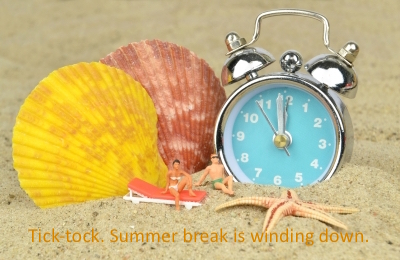 Image courtesy: Mister GC/FreeDigitalPhotos.net
Image courtesy: Mister GC/FreeDigitalPhotos.net
Here’s a low stress guide to easing yourself back to the “school mode” while still getting the most out of your summer. Kick back, relax, and take a couple of minutes to learn how to take the stress out of the last few days of summer.
Assignments
You probably have some “homework” assigned that you’re expected to turn in when school reopens. And it’s going to weigh you down as long as it is still a “to-do”. Aim to get it done now, so you’re not scrambling on the last day of your break.
Almost everyone has “summer reading” requirements, which often involves more than one book. Haven’t started your reading yet? It is not too late! Want to check your reading comprehension skills? Check them out here and if you’d like some help, we can help – get in touch!
Supplies
Though technology has made huge inroads in education, we’re still not a time when you can go to school just with a laptop or tablet. If you want to make sure you get what you want, not just what’s left over and available, make time to figure out what you need and go get it so you can check it off your list. Somehow seeing a stack of notebooks and ruled paper subliminally puts you in the mood for school.
And though they’re not technically “supplies”, now’s a good time to think of clothes, shoes, athletic gear and anything else you may want for the next school year. (Fun fact: teens spend 40% of their money on clothing!) While you may not want to go overboard and get everything now (it may be smart to wait until school starts to find out what you really need and want), it will be a relief to have what you need handy instead of burrowing through your laundry basket on the first day of school.
Memories
Was there something special you really wanted to do just for yourself this summer? Learn to play a song, or master some dance moves, get in touch with someone you really care about, have an amazing day with your best friends, cook something special for your grandma – something that would make you feel good about yourself? Even if you have only a few days left, make time to do that special thing. Make your summer memorable (and take pictures!) in a way that matters to you. It will not only help you start the new school year with an emotional boost, it will give you memories you’ll cherish for many years to come.
Need Help With Essays?
Get personalized feedback from a Stanford-trained educator on any personal essay that’s critical to you.
Related Posts:
Now that’s a simple enough to-do list isn’t it? It’s based on the proven concept that choosing preparation over worrying beats stress, and everything on this list is something you can plan for, and get done, to your own schedule.
Summer break’s winding down and the school year’s almost here, but with a few easy actions you can enjoy both!





